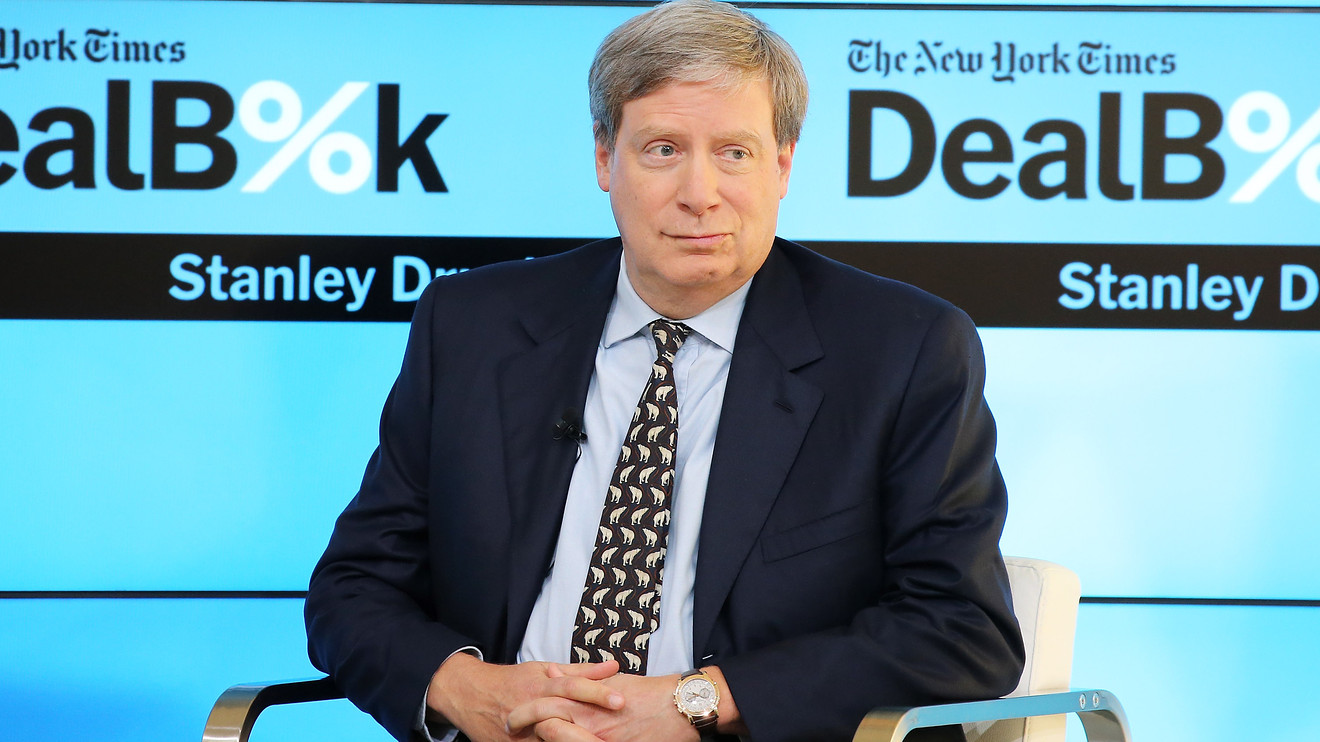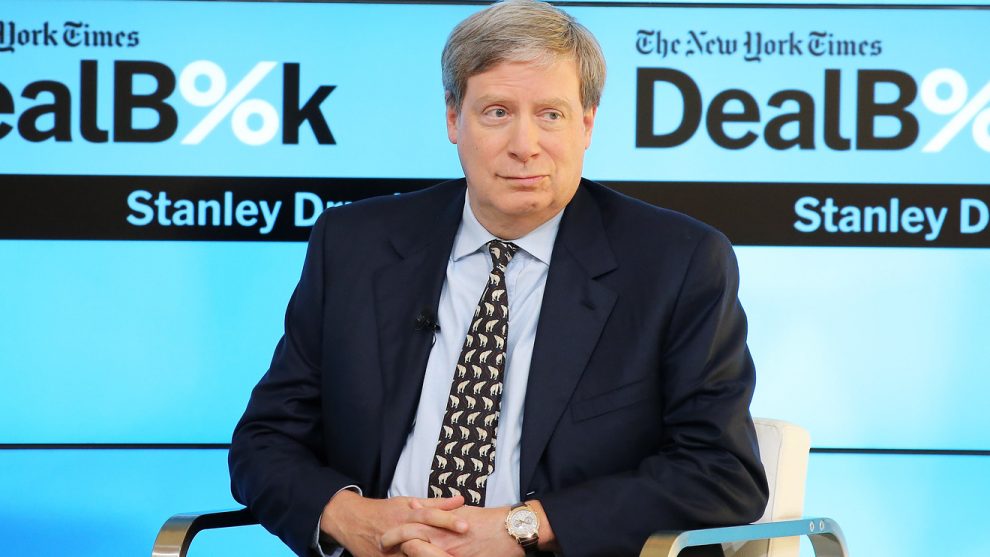
Stocks look ready to rebound from yesterday’s tech-driven mess.
We can maybe thank St. Louis Federal Reserve President James Bullard, who said Monday that U.S. interest rates may be too high given trade tensions — something financial markets have been screaming about. Note, on Tuesday Australia became the first developed central bank to cut rates in 2019, citing, yep, global trade jitters.
Onto our call of the day from billionaire investor Stanley Druckenmiller, who is also pretty convinced the Fed is going to cut rates, maybe even to zero. The famed manager says he has been buying Treasury bonds, and seems to be preaching caution to equity investors amid trade-war threats.
“When the Trump tweet went out, I went from 93% invested to net flat and bought a bunch of Treasurys,” Druckenmiller told Scott Bessent, founder and chief investment officer of Key Square Capital Management at the Economic Club of New York.
He was referring to President Donald Trump’s May 6 tweet that threatened Chinese tariffs. It sparked a move by investors to sell stocks and pour money into the perceived safety of government bonds. U.S.-China tension has worsened since that tweet, amid fears a full-blown trade war could trigger an American recession, with Trump’s recent tariff threat against Mexico not helping.
Druckenmiller said he was caught off guard by the Trump tweet because he hadn’t thought that the Chinese trade deal would blow up. He said he shifted his investments a month ago because he doesn’t “want to play in this environment,” saying investors need to wait for better opportunities as well.
The money manager spent years managing a fund for billionaire investor and philanthropist George Soros. He left to focus on his own investment firm Duquesne Capital , which reportedly never had a losing year and returned 30% annually until he closed it in 2010.
“So I think if you’re confident in your long-term view and ability to make money, this is not a great environment to be going and betting the ranch. Not short, not long,” Druckenmiller said. He’s known to employ a top-down investment style that involves trading very bullish or very bearish positions based on macroeconomic trends, something he’s clearly finding tough these days as well.
“I can’t make 30% a year any more and I don’t even charge fees. It’s a depressing environment,” he said.
That partly explains why he has sought out some safety in bonds. He said if an investor believes the U.S. economy will deteriorate, then Treasurys are “the best game in town,” while “gold is not bad either.” Druckenmiller thinks the Fed could cut interest rates to zero in the 18 months and maybe even by 50 to 100 basis points in the next year.
He’s not completely down on all equities though, saying firms that provide goods and services investors need through good and bad times, known as “secular growth companies” can do well in a “1% nominal growth environment” and are a good bet. He, once again, expressed his passion for cloud-based corporations.
He also owns Chinese tech groups Alibaba BABA, +0.44% and 700, -1.92% and insurer Ping An 2318, -1.56% companies he says are fueled by domestic growth.
Druckenmiller also found time to sling an arrow at the U.S. government, amid signs big tech companies are now on its hit list. As the billionaire investor explained, the future of an economic war with China will be fought with artificial intelligence and the U.S. should be helping, not hurting related companies.
He said China started easing up on its private sector last autumn and has been highly supportive of its own tech sector. “What are we doing? Oh, we’re saving, steel, coal, aluminum. What are we doing with our leading tech companies? We’re throwing sand in the gears and making their life miserable.”
You can watch the full interview with Druckenmiller here.
The market
Dow YMM19, +0.59% S&P 500 ESM19, +0.56% and Nasdaq NQM19, +0.56% futures are moving higher. That’s after the Nasdaq COMP, -1.61% finished in correction territory on Monday.
The yield on the 10-year Treasury note TMUBMUSD10Y, +2.62% has crept up to 2.10%, while gold GCQ19, +0.04% is higher and the dollar DXY, +0.06% is steady. Oil CLN19, -0.81% looks set for another losing day.
Europe stocks SXXP, +0.37% are rising, but Asia mostly fell, with China stocks SHCOMP, -0.96% off nearly 1%. Australia stocks moved slightly higher after the central bank’s rate cut in nearly three years.
The buzz
With big technology companies such as Alphabet’s Google GOOGL, -6.12% Facebook FB, -7.51% Apple AAPL, -1.01% and Amazon AMZN, -4.64% now in the crosshairs of the U.S. government, the question is, what is the impact for consumers?
The Trump administration says China officials are misrepresenting why trade talks have stalled between the two countries. Meanwhile, restaurant chain Chipotle CMG, -2.77% says burrito prices could go up if the U.S. follows through with threat to raise tariffs on Mexico.
Factory orders, which gauge the health of manufacturing, will come after the market opens, but otherwise it’s quiet data-wise for Tuesday. Check out our preview that includes a look at Friday’s coming jobs data.
Random reads
Popular brand-name drug prices double every seven to eight years, says a new study
Lawsuit alleges a Trump company failed to pay millions in Panama taxes
Court says WikiLeaks founder Julian Assange shouldn’t be extradited to Sweden for rape charge
California regulators say your coffee isn’t bad for you
A deadly influenza strain may have killed a young, healthy Texas couple on holiday in Fiji
Need to Know starts early and is updated until the opening bell, but sign up here to get it delivered once to your email box. Be sure to check the Need to Know item. The emailed version will be sent out at about 7:30 a.m. Eastern.
Follow MarketWatch on Twitter, Instagram, Facebook.











Add Comment